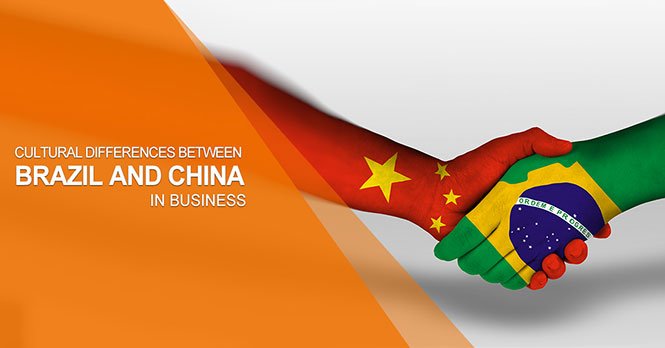With extraordinary speed, China has become Brazil's most important economic partner. In 2010 China was Brazil’s largest trading partner, accounting for over 15 percent of total Brazilian exports and supplying over 14 percent of its imports. Brazil has become a major supplier of iron ore and soybeans to the Chinese market, and exports to China increased almost thirty-fold between 2000 and 2010.
When doing business, each country has its own cultural particularities that should be noted. Since China is expected to remain as Brazil’s main trade partner for the coming years, being aware of these cultural differences can be crucial for a successful business relationship.
Brazil is a multicultural and multiethnic society, resulting in cultural mixing that occurred during the colonial period and late 19th and early 20th centuries and it has been historically an important source of natural resources in its 510 years of history. China is a country with 5,000 years of history. Throughout most of Imperial China’s history, Confucianism was the official philosophy and the country's traditional social values were derived from various versions of it.
In order to have a better understanding of how culture plays an important role when doing business, the business etiquette of these two countries should be highlighted:
1- In China exchanging business cards is more ceremonious and important than in Brazil. In China the card should be handed with both hands, and when receiving a card one should take a good look at it, while in Brazil business card exchange is just a way of sharing information.
2- Chinese people see the relationship developed with a person as the relationship built with a whole company. Brazilians are more individualist, the person they deal with is more important than the company.
3- A very common way of building relationships in China is to have long dinners, with several alcohol toasts and cigarette offers. Meals are definitely appreciated by Brazilians, but smoking while eating would be highly inappropriate, besides, a meal does not have the same high value as it does for Chinese businessmen.
4- Informality shapes the dialogs between Brazilians; anyone who wants to share an opinion would just interrupt whoever is speaking to share his thoughts. In Chinese culture it would be consider disrespectful to interrupt someone that is speaking.
5- Brazilians are very warm when greeting; hugging, backslapping and even cheek kissing can all be considered acceptable behavior among business partners. When greeting, Chinese people are more reserved, human touch is usually restricted to hand shaking.
From this Sino - Brazilian business practice comparison we can see that culture plays a decisive role to what is considered confusing or even offensive in a business partnership. In order to have a successful relationship, business representatives must be provided with an understanding of the cultural differences and be sensitive to them when conducting business.




Discussion